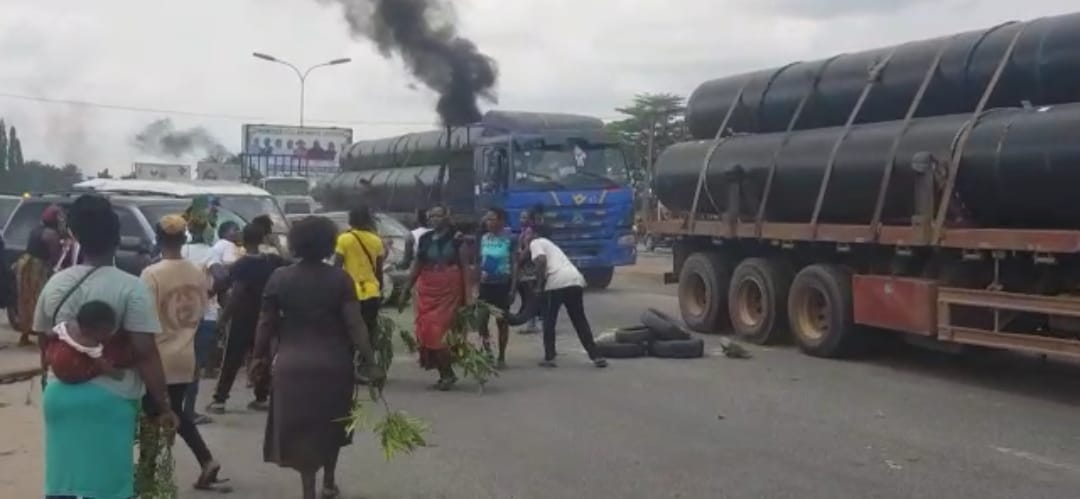Naira scarcity protest spreads to Delta
By Meluwa Kelvin, Asaba Residents of Uvwie and Warri South Local Government Area of Delta State, on Friday took to the street to protest against lack of access to the naira. The protest, which broke out a few hours after angry demonstration in Ibadan, Oyo STtate capital, forced some banks to suspend activities. Scores of […]

By Meluwa Kelvin, Asaba
Residents of Uvwie and Warri South Local Government Area of Delta State, on Friday took to the street to protest against lack of access to the naira.
The protest, which broke out a few hours after angry demonstration in Ibadan, Oyo STtate capital, forced some banks to suspend activities.
Scores of market women barricaded the Warri-Sapele Road and NPA Expressway, ground activities in the areas.
The protesters also laid siege to the United Bank for Africa and Union Bank located near Main Market, Warri.
Naira scarcity: Bank vandalised as protesters take to streets in Ibadan
Naira crisis: Don’t set Nigeria on fire, Oluwo warns FG
Traders who bore placards and leaves lamented the inability to sell their goods in the past few days.
As part of the protest, they burnt tyres along the ever busy roads.
Rejecting the cashless policy of the Central Bank of Nigeria, they demanded that commercial banks release money to enable them carry out their legitimate businesses.
Echoes of “our fish dey spoil o”, our foods dey rotten” were heard as the women protested from the Main Market axis of Warri Sapele Road to Delta Broadcasting Station located at the Edjeba axis of NPA Expressway in Warri South Local Government Area.
Security operatives tried to pacify the aggrieved traders but they insisted on collecting their money from banks.
One of the traders lamented that she stayed in shop all through Thursday without making a dime.
“Our children are hungry, we cannot sell, we cannot do transfer, we cannot withdraw our money. I stayed in shop throughout yesterday and sold nothing. People who want to buy things tried to transfer money but could not,” she said.
In October last year, governor of the Central Bank of Nigeria (CBN), Godwin Emefiele, announced the plan to redesign the N200, N500, and N1,000 notes, and asked Nigerians to deposit their old notes before January 31, 2023 when they would cease to be legal tender.
Although the deadline has been shifted to February 10, many Nigerians have found it difficult to obtain the new naira notes.
Daily Trust reports that Point of Sales (POS) operators have also unofficially put their charge rate of N5,000 between N500 and N1,000.
